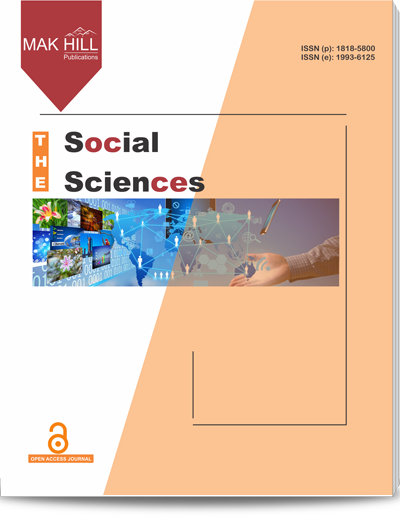
The Social Sciences
ISSN: Online 1993-6125ISSN: Print 1818-5800
Abstract
Indonesian was adopting general election as a political mechanism to choose the head of local government, since 2004. Local bureaucracy as the branch of executive power tends to be trapping in ambiguity situation. In one side as public interest guardian, they should be neutral, professional and continue to serve public service. In another side as a middle class and a part of status quo, they have the power to influence the result of the local election. In this circumstance, this study wants to explain the political relation between politician and bureaucrat in local government. We focused on two question: why is very difficult to apply meritocracy principle in selecting and recruiting the official of local bureaucracy? Why do politician and bureaucrat maintain patronage strategy as a basis to build political relation? Based on empirical research in two districts, Melawi and Kubu Raya, West Kalimantan Province, we find that the big challenge for implementing meritocracy in local government is the patron-client relationship which is embedded in cultural view among informants. The patron-client relationship gives opportunity for patronage as a political strategy to growing and adopted by many bureaucracies and political elite at the local level. It is hard, then to reform local bureaucracy because spoil system is a safety zone which protects their power and vested interest.
How to cite this article:
Ngusmanto . Politician-Bureaucrat Nexus in Local Government: The Case of
Melawi and Kubu Raya, West Kalimantan, Indonesia.
DOI: https://doi.org/10.36478/sscience.2017.2277.2283
URL: https://www.makhillpublications.co/view-article/1818-5800/sscience.2017.2277.2283